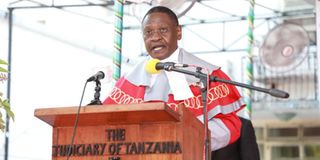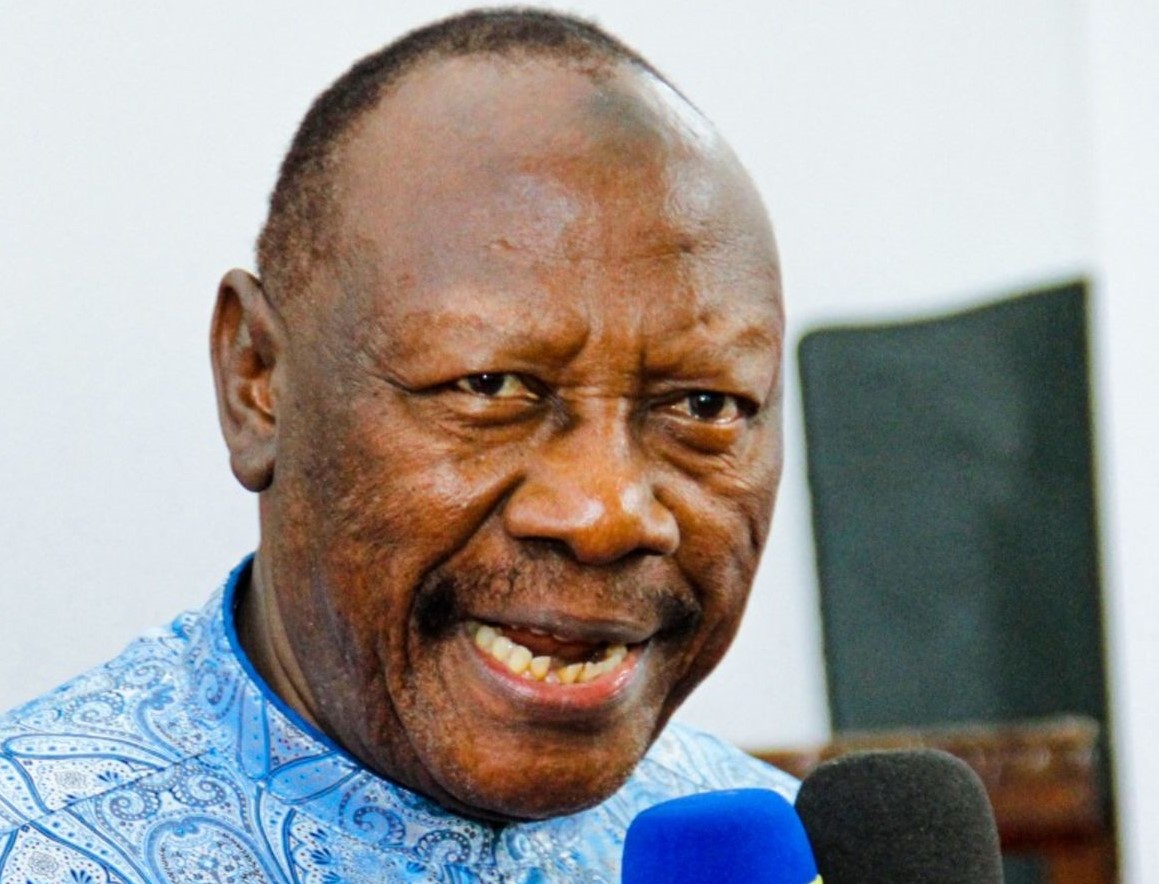Prime
Controversy over Chief Justice lands in court

The current Chief Justice, Prof. Ibrahim Juma, has attained the retirement age of 65. PHOTO | COURTESY
What you need to know:
- The case comes amid heated debate following reports that President Samia Suluhu Hassan has extended Prof Juma’s tenure.
Dar es Salaam. The controversy surrounding Chief Justice Ibrahim Juma’s tenure took a new turn yesterday when – for the first time in Tanzania’s history – a lawyer filed a case at the High Court, saying it was unconstitutional for the CJ to remain in office after attaining the retirement age of 65.
The case by private practice lawyer, Humphrey Simon Malenga – filed at the Main Registry of the High Court – comes amid heated debate whereby some legal experts have voiced their dissatisfaction following reports that President Samia Suluhu Hassan has extended Prof Juma’s tenure.
Last week, Court of Appeal judge Stella Mugasha wrote to the Chief Court administrator Elisante Ole Gabriel, protesting what she said was a violation of the Constitution.
Prof Juma – who has served as CJ since 2017 – was born on June 15, 1958, meaning that he clocked 65 on June 15, 2023.
The appointment of the Chief Justice – who heads the Judiciary and the Court of Appeal – is made by the President as per Article 118 (2) of the Constitution of the United Republic of Tanzania.
The Constitution states that the person to be appointed the CJ must be a Justice of Appeal.
The Constitutional provision shows that the CJ shall hold office until he attains the retirement age of the Justice of Appeal, except if he resigns; his office becomes vacant on grounds of illness or death; or he is removed from the post of the Chief Justice by President.
On that note, Article 120 says the retirement age of the Justice of Appeal - which also determines the end at which the CJ shall hold office - is sixty-five years.
However, there is an exception where the President directs that he should not vacate office, and if the President so directs, then the Justice to whom the directions of the President relate shall not vacate office until the expiry of the period specified by the President for that purpose, according to Article120 (2).
It was on the latter that President Hassan has reportedly extended the tenure of Prof Juma.
But in the Case Number 7 of 2023 against the Attorney General, Mr Malenga wants the Court to give a definition of provisions regarding the Powers of the President in connection to Article 118 (2) and 120 (2) and (3) of the Constitution of the United Republic of Tanzania.
Article 118 (2) reads: “The Chief Justice shall be appointed by the President from amongst persons who possess qualifications to be appointed as a Justice of Appeal and shall be the Head of the Court….and shall hold the office of a Chief Justice until he attains the retirement age of the Justice of Appeal, except if he resigns; his office becomes vacant on grounds of illness or death; or he is removed from the post of the Chief Justice by President”.
On the other hand, Article 120 (2) reads: “Any Justice of Appeal may vacate office in the service of the Untied Republic at any time on attaining the age of sixty five years except where the President directs that he should not vacate office, and if the President so directs, then the Justice to whom the directions of the President relate shall not vacate office until the expiry of the period specified by the President for that purpose”.
Article 120 (3) reads: “In the event that the President considers it to be in the public interest that a Justice of Appeal who has attained sixty-five years of age continue in office, and the Justice of Appeal agrees in writing to continue in office, then the President may direct that the Justice of Appeal continue in office for any period which may be specified by the President”.
In his argument, Mr Malenga wants the Court to declare whether or not the provisions of Article 120 (2) (3) of the Constitution - read together with Article 118 (2), also apply to the CJ.
Similarly, he wants the Court to declare whether or not there a connection between Article 118 (2) and Article 120 (2) and (3).
In short, he wants the Court to declare that Article 118 (2) is a standalone provision that has nothing to do with Article 120 (2) and (3) which details the retirement age of the CJ.
Mr Malenga wants the Court to make a definition of the Powers of the President in directing that a Justice of Appeal should not vacate office after attaining the age of 65 does not apply to the Justice of Appeal who is also the CJ.
Thus, he urges, the Court should declare that a decision that the current Justice of Appeal, who is also the CJ to not vacate office, is Unconstitutional.
The case, which was filed on June 28, 2023, will be heard by Judge Godfrey Isaya. It was mentioned for the first time yesterday in presence of lawyesr from both sides.




